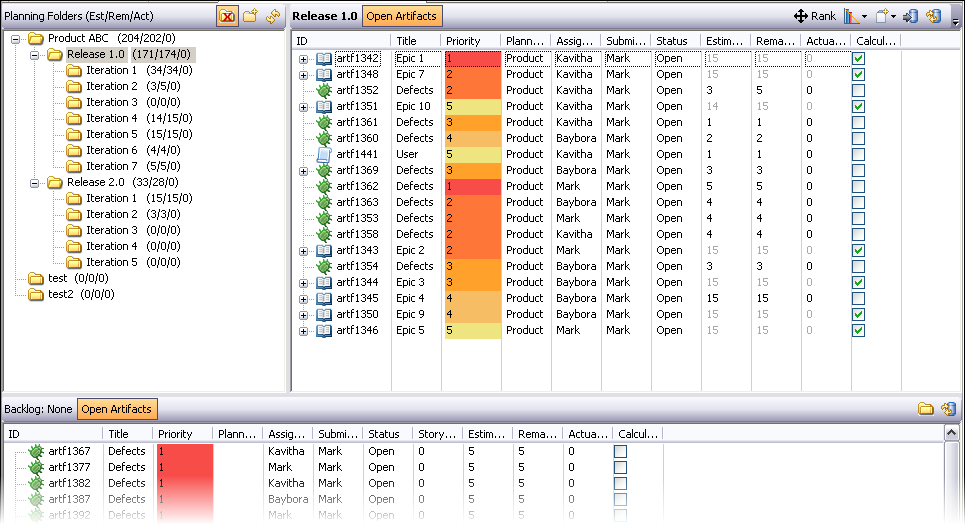The Planning Editor is the hub for your project's Agile activities. Here you can see, plan, and monitor the features and tasks that need to be completed in order to release your product. You can assign artifacts to planning folders, make quick changes and in-place updates, and view charts that help you monitor progress.
The Planning Editor has three panes:

- Planning Folders
- Backlog
- The artifact table

The Planning Folders pane displays a hierarchy of all the
planning folders in your project and the effort estimates for each one. When you select
a planning folder, the adjacent table displays the artifacts it contains. You can drag
artifacts from the backlog pane or artifact table and drop them into a planning folder
in this pane. You can show or hide inactive
planning folders, by clicking this icon (available since TeamForge 5.4):


In the Backlog pane, depending on your active planning
folder, you can see the list of artifacts for the product (the "product backlog"), or a
particular release or iteration (in Agile terms, an "iteration backlog" or "sprint
backlog"). Selecting "None" for the active planning folder displays all the artifacts
required for the product that have not yet been assigned to a specific iteration or
release.
The artifact table displays details for the individual artifacts for the selected
planning folder. In this pane, you can quickly create new artifacts and establish
dependencies, and make in-place edits to artifact status, priority, effort estimates and
the user it's assigned to. This can be particularly useful if, for example, you're in a
planning meeting and need to make changes on the fly. Your changes are local until you
save them.
You can choose to see all artifacts or only the open
ones by toggling the Open Artifacts option.
The chart icons at the top right corner of the editor provide access to a variety
of graphs that help you monitor your project's progress. See What are all these charts about?.